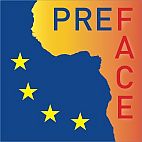WP6: Coupled basin-wide processes determining the climatology
Lead: Thomas Toniazzo (UniRes, Norway), Aurore Voldoire (MF-CNRM, France)
Main Objective:
The overarching goal of WP6 is to reduce systematic error in the simulation of tropical Atlantic (TA) climate. The focus will be on systematic biases that develop on time scales from hours to a year, as captured in ensemble integrations of the GCMs initialised from observational data of the global ocean and atmosphere.
Specific Objectives:
- Evaluate and characterise systematic biases present in the climatology of current ocean-atmosphere coupled models in the TA and of their emergence in hindcast integrations, including seasonal forecasting systems and PREFACE models, by which hypotheses will be formulated regarding the likely mechanisms for the development of such biases.
- Develop partial and regional flux-correction, decoupling and nudging techniques for numerical sensitivity tests with coupled GCMs and perform coordinated experiments.
- Diagnose results from coordinated experiments to estimate the relative importance of different processes for TA bias development, and design targeted model-specific experiments to discriminate causes and triggers of bias development.
- Design and test model modifications for the mitigation of model systematic errors.
Explore our output section for more.
Partners involved:
- UiB, Norway
- UCPH, Denmark
- CERFACS, France
- MF-CNRM, France
- UPMC, France
- GEOMAR, Germany
- WUR, The Netherlands
- UniRes, Norway
- BSC (formerly IC3), Spain
- UREAD, England
- UCAD, Senegal
WP7: Relation between the background state (error) and variability
Lead: Emilia Sanchez Gomez (CERFACS, France)
Main Objective:
The main objective of WP7 is to analyse the relationship between models mean biases and the representation of the tropical Atlantic variability on seasonal to decadal timescales.
Specific Objectives:
- To make an assessment of the representation of tropical Atlantic variability at seasonal to decadal timescales by the state-of-the-art climate models (CMIP5 and other specific configurations).
- To understand through statistical analysis and model experimentation the relationship between the model systematic error and the representation of tropical Atlantic variability at seasonal to decadal timescales.
- To determine the optimal model configuration for the representation of seasonal to decadal tropical Atlantic variability and for the application in predictability studies (WP9 and WP11).
Explore our output section for more.
Partners involved:
- UiB, Norway
- CERFACS, France
- MF-CNRM, France
- UPMC, France
- GEOMAR, Germany
- WUR, The Netherlands
- UniRes, Norway
- BSC (formerly IC3), Spain
- UCM, Spain
- UCAD, Senegal
- UNN, Nigeria
WP8: Influence of remote systematic errors
Lead: Belen Rodríguez de Fonseca (UCM, Spain)
Main Objective:
The main objective of WP8 is to understand the interaction of model systematic errors among different regions, and to assess to what extent local systematic errors can be understood in isolation of remotes errors. We will focus on seasonal to decadal timescales and address the dependence on the mean state of the teleconnections and planetary-scale feedbacks involving the tropical Atlantic (TA) basin. The inter-basin teleconnections, land-ocean and tropical-extratropical interaction will be analysed. To this aim, CMIP5 and SPECS simulations will be analysed and partially coupled sensitivity experiments will be performed with different models in coordination across participating modeling groups. The findings from analysing the numerical experiments will serve as feedback to in the form of a list of hypotheses for a correct representation of TA mean, variability and modulations.
Specific Objectives:
- To assess the influence of systematic errors in regions remote from the TA on the TA mean state, and variability.
- To assess the influence of TA systematic errors on remote regions, mean state, and variability.
- To assess the impact of the systematic error on the representation of the tropical interbasin teleconnections.
Explore our output section for more.
Partners involved:
- UiB, Norway
- MF-CNRM, France
- UPMC, France
- GEOMAR, Germany
- UniRes, Norway
- UCM, Spain
- UREAD, England
- UNN, Nigeria
